Our Clan Connections
From an early age I had close connections with my mother's
family, who were the McColls of Ballachulish near Glencoe in Argyllshire, Scotland.
Her father, Henry Stuart McColl, left there for New Zealand in 1860, along with
his father and grandfather, both Duncan McColl, when Henry was eighteen and unmarried.
Henry Stuart McColl
Henry was the oldest of seven children who made the trip, the
youngest being the first child of Duncan's second wife Margaret McDonald.
Henry's uncle Archibald McColl, had also emigrated a year before, along with
his wife and eight children. The two Duncans and the Archibald McColls
settled around Brighton, Otago, where their descendants farmed and mined
coal for a century or more. Henry McColl continued to South and Central
Otago, where he had a succession of schoolmaster positions. When
he retired early from teaching at Hillend, Wangaloa & Macraes they shifted to the Catlins, living for a long period in Glenomaru, where he and his wife Joanna (Crawford)
raised eight children, including my mother.
Joanna Crawford
Meanwhile Duncan jr and Margaret (McDonald) had had a second
child, Archie McColl, who was therefore a half-brother of my grandfather Henry.
He was born in New Zealand in 1862, but identified throughout his whole
life as a "highlander". As a child he was a champion piper, and as an adult
Archibald McColl III
a blade shearer and apiarist. He spoke with a Scottish accent, had Gaelic
as well as English, and helped to bring up my mother after her father's death
in 1900, when Joanna's family was broken up among kindly relatives no doubt
to ease her burden. Archie McColl became a member of our family and
filled the role of "loving and beloved grandfather", living at Ocean View,
Brighton (New Zealand), until his death in the 1930's. He was a raconteur
of no mean repute, and regaled us with real and imagined stories of life
in early Otago. "Tell us another one, Uncle!" has become a family slogan.
He had been carefully taught about the Glencoe Massacre, and nursed a fierce
distrust of all Campbells. He also voted Labour on principle,
but was disenfranchised on one occasion when Labour nominated a Campbell
for the Chalmers electorate. Archie McColl was remembered by the poet
James K Baxter as a "great man", and I believe that he was referring to his
humility, goodness & integrity, rather than any worldly fame.
James K was a great-grandson of an earlier Archibald McColl, whose
daughter had married a Baxter. James K's father was the famous
New Zealand pacifist and writer Archie Baxter. A Baxter girl also
married a McColl boy, giving rise to the common Brighton phenomenon
of "double cousins".
These people, the Baxters and the McColls, predominantly of Brighton, became part of the tapestry of our childhood, and helped to provide the values that we all took further into life. Brave, industrious, frugal and friendly, they seemed to us to be a "noble race",
yet when I visited Ballachulish myself in the 70's and expressed such an
opinion, the parish minister described the emigrants of 1860 as "poor wretches"!
He told the tale of an old lady sitting on the deck of the Henrietta as it lay at anchor in Loch Linnhe before its four-month voyage to New Zealand. She sat
beside her cloth bag, all she owned in the world, and was asked "Oh, Mrs
McDonald, are ye no afeard going all that way?" Her response was,
"Och, no, we'll just gang through the Corran narrows and the worst
will be over!" How little she knew! I began to redraft my romantic
notions, but admired my forebears all the same.
My wife is Norah Donald, whose father Charles Mitchell Donald sr always
referred to his family as descended from the Lord of the Isles. His
immediate family were from in and around Glasgow, and his father
Thomas Donald IV (i.e. the fourth in our records) apparently sailed to
America early in the twentieth century for unknown reasons. We have been
unable to discover any trace of his life in North America, nor any record
of his death. He was born on March 10, 1861, and his fifth child Robert
was born in 1904, around the time that Thomas Donald left the family for
the New World in his forties. He would have been an old man by the
1930's. Did he found another family? Did he die during his working life?
Had he gone to seek his fortune for the sake of his working class family
in Glasgow? What became of Thomas Donald?
P.S. Aug 2008: Detailed research and painstaking efforts from our cousins in Arizona and Bute have established that Thomas did indeed seek work in Paterson, New Jersey, where he almost certainly became a silk weaver, and fully intended to send money back to his poor wife and large family in Glasgow. However, it seems that he was drowned, probably in one of the huge floods which engulfed the New Jersey area around that time. Elizabeth received only one payment from America before that tragic end, and was forced to apply more than once for the meagre state assistance available at that time.
Elizabeth & Thomas Donald IV Charles Mitchell Donald sr
Having discovered a newly founded branch of the Clan Donald Society here in
Christchurch just a few years ago, Norah and I joined it with great
enthusiasm, as we both had our links with the clan. The McColls were
originally a clan in their own right from Loch Fyne, but later
became a sept of the Glencoe MacDonalds and close associates of the
Stewarts of Appin. The number of McColl gravestones around Glencoe,
Ballachulish and Fort William bear testimony to the location of their
last congregations. The fact that my great-grandfather took Margaret
McDonald as his second wife, who gave birth to our beloved Uncle Archie,
gives us another link to that clan. The Glasgow Donalds, my wife's
family, believed in their Highland connection, too, though the route
by which they came to Glasgow is difficult to ascertain. Her father's
insistence on the Isles origin seemed to be firmly rooted in oral history.

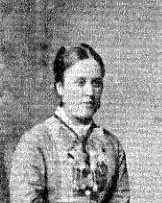
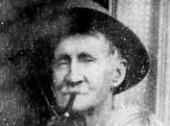
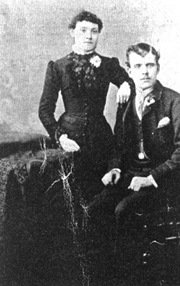
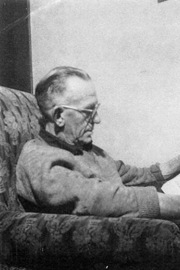
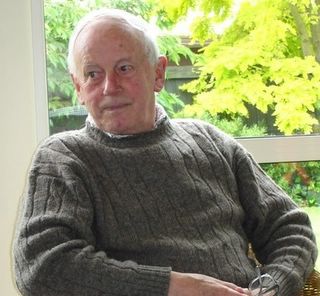

0 Comments:
Post a Comment
<< Home